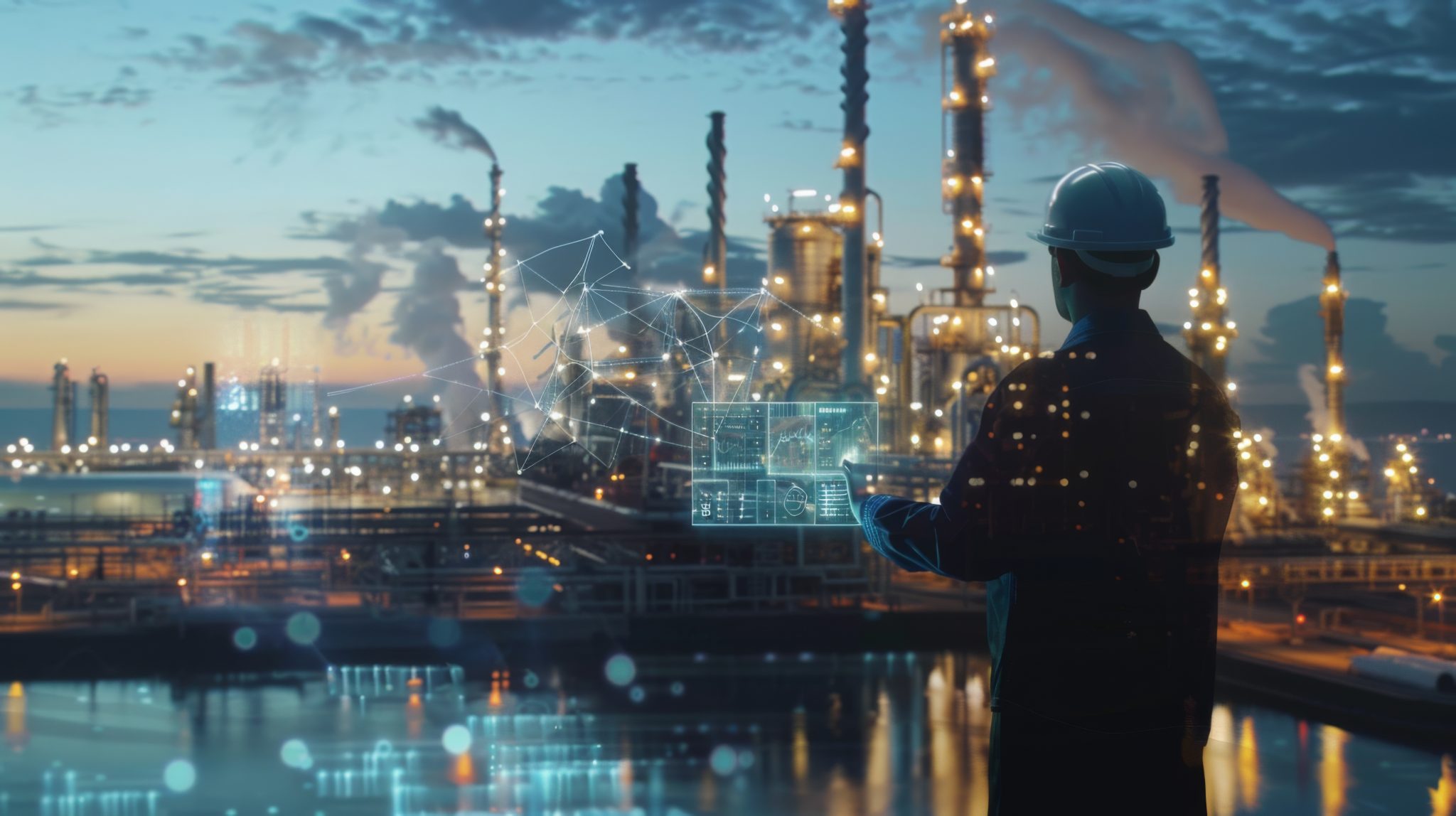One of the characteristics of Oil & Gas companies is that they are big data generators. Therefore, the adoption of modern data platforms in the Oil & Gas industry is a key strategic decision. It is what allows them to successfully face the challenges that the future of this business proposes.
The points that collect data along the industrial chain in Oil & Gas companies are countless. From upstream to downstream, passing through all support areas, the industry is very technology intensive. Sensors, internet of things devices, equipment and vehicle measurements, geological analyses, business transactions…

The difference will be made, then, by the companies that manage to convert all this data into actionable insights. In other words, those that manage to use them to generate value for the business and accelerate decision making.
Introduction to Modern Oil & Gas Data Platforms
As mentioned, Oil & Gas industries, by their very nature, are highly sensorized. That is, they collect an enormous amount of data from the real world. This data is generated at different speeds, in different volumes and in multiple formats.
Modern data platforms make it possible to ingest all that data, process it, store it and turn it into a source of added value. Regardless of the speed, volume and format, it is possible to store it “raw” and apply different quality and processing techniques to get business insights.
Use Cases for Modern Data Platforms in Oil & Gas
The complexity of the Oil & Gas business makes the use cases for modern data platforms very numerous.
Those of high value to the business allow addressing the most important challenges faced by the industry. The following are just a few examples of use cases for the Oil & Gas industry:
AI-assisted exploration and shaping
Based on existing data, it is possible to improve exploration success rates, optimize asset performance or reduce costs.
Remote operations and monitoring
Reduce the risks associated with operating or operating hazardous machinery. At the same time, it increases human capital efficiency and enables better resource planning.
Intelligent automation
Streamlines labor-intensive processes.
Operational reporting
With specific details according to the position and decision making data needs of the person requesting it.
Time series visualization
To evaluate the behavior of some equipment or other variable that is monitored.
Predictive maintenance
From the development of machine learning models, it is possible to reduce downtimes and lower maintenance costs.
Optimization of the logistics chain
Again, machine learning models here enable optimal efficiency and highly accurate coordination in production, transportation and delivery cycles. It also makes it possible to leverage industry networks and drive collaboration in aspects such as engineering or constructions.
Supporting sustainability strategy
Data is a key ally in ensuring ever-changing and demanding regulatory compliance. At the same time, it underpins environmental care and carbon footprint reduction strategies by optimizing tasks such as refining and transportation.
Value-added solutions for the end consumer
Development of price optimization or promotional strategies. New business or monetization models can also be created.
Challenges in the use of modern data platforms in Oil & Gas
Challenges are a daily struggle. Therefore, it is very important to have a strategic partner that will help you in every step of this transformation. Nubiral combines extensive industry knowledge with a complete set of services, infrastructure and resources. This allows a quick implementation of modern data platform projects for Oil & Gas companies.
Some of the key challenges on the path to implementing and leveraging modern data platforms include:
Identifying the right way to integrate data for each use case
The Oil & Gas industry is complex and many of its operations are highly specialized. An upstream process may handle a completely different data set than a downstream one.
Consider the OSDU platform
The Open Subsurface Data Universe (OSDU) has established itself as the reference architecture and standard for modern data platforms in the Oil & Gas market. It will have to be considered for all future decisions.
Dealing with legacy data repositories
One of the main characteristics of the Oil & Gas industry is the use of very specific software to cover different functions. The challenge is how to integrate the data repositories of those products into the modern data platform.
Conclusions and benefits of using modern data platforms in the Oil & Gas industry
The exploitation of data through modern platforms allows the Oil & Gas industry to gain operational efficiency, increase sales volume and achieve improvements in its processes, among other advantages.
It enables all kinds of optimizations and improvements: travel reduction, staff safety and reduced downtimes.
It also enables time reduction in critical tasks. It gives managers the data they need in a precise and timely manner so that they can make decisions more quickly.
But most importantly, this is a changing, competitive industry with enormous business, social and environmental challenges. In this context, data becomes the fundamental ally to navigate, and succeed, in the future of the business.
Is your Oil & Gas company ready to get the most value from your data? Then our experts are waiting for your call: Schedule a meeting!





